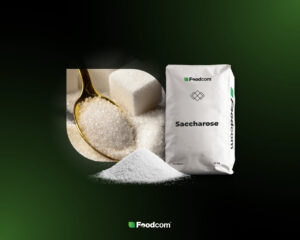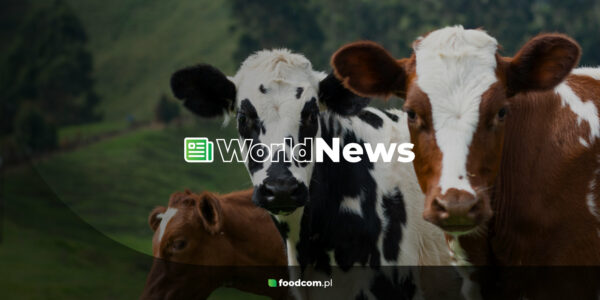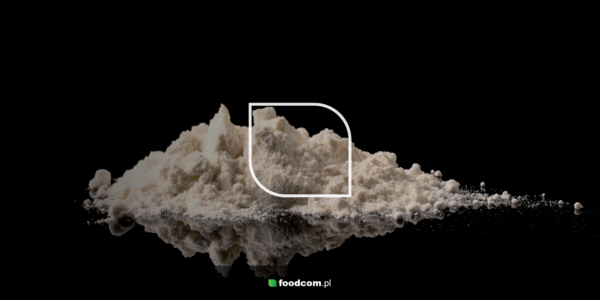Welcome to our plant-based newsletter!
This week we discuss important developments in the agricultural and food sector, including the impact of trade limits on Ukraine’s sugar exports to the EU, the rising demand and cost of tapioca starch and the growing popularity of high-protein isolates despite potential price rises. In addition, we look at the surge in Irish potato prices and the potential reduction in grain and oilseed harvests in Ukraine due to severe frosts. Stay tuned for our analysis of these critical market trends and their potential implications.
Let’s take a look at what else is happening on the market!
Products of the Week
Sugar
This week Ukraine’s sugar exports to the European Union reached the free trade agreement’s limit of 262,600 tons, halting further imports. The “Ukrtsukor” association called for a zero quota for sugar exports to the EU for 2024. The updated trade agreement will come into force on June 6 this year. Ukrainian sugar, now cheaper, has quickly exhausted its export limits. The suspension of sugar imports from Ukraine could lead to higher sugar prices in the EU, forcing importers to seek other sources of supply. It could also affect the price of sugar-containing products, as well as substitutes.
Tapioca
Tapioca Starch, both Native and Modified, is in growing demand on the market due to its unique properties. Producers and buyers are keen to choose this product because products from Thailand have more certifications than those from other parts of Asia. Its popularity is growing steadily, indicating huge market potential. Tapioca Starch is widely used in cooking and as an ingredient in healthy food and pet food. It is worth noting, however, that due to imports from Asia, transportation costs are high, due to distance, fuel costs and global disruptions in supply chains, among other factors. These high transportation costs have a direct impact on the price of tapioca starch, making it more expensive for end users in Europe.
High Protein Products (Isolates)
Products with high protein content, such as rice, pea and soy protein isolates, are gaining popularity due to their nutritional value – they support muscle building, the immune system and digestion. We are seeing more and more inquiries from the sports nutrition and vegan industries, where soy protein isolate is particularly popular. Meat producers are also striving to increase protein content by incorporating these isolates into their products. However, rising shipping costs and the availability of these products on the market, may result in higher prices.
NEWS
Potato prices surge in Ireland amid shortages and high input costs
Irish consumers are set to pay more for potatoes in the coming months as shortages drive up prices, with supermarket costs already 17.3% higher than last year, reports RTÉ. The Central Statistics Office (CSO) data indicates that farmers received 74% more for potatoes in March compared to the previous year due to scarcity. Sean Ryan from the Irish Farmers’ Association noted that despite the high prices, most growers haven’t benefited as many sold their crops at lower prices immediately after harvest. Meanwhile, CSO data revealed a 3.5% overall decline in prices paid to farmers over the past year, with notable decreases in cereal, milk, and pig prices, while input costs fell 15.3%, particularly in fertilizer, feed, and energy.
Severe frosts threaten ukraine’s grain and oilseed harvest
Severe frosts in Ukraine’s northern and eastern regions could reduce this year’s grain and oilseed harvest by 20% to 30%, according to analyst APK-Inform. Early May temperatures dropped as low as minus 9 degrees Celsius, damaging wheat, barley, rapeseed, and pea crops. Despite the agriculture ministry maintaining its current crop forecast, a review is expected in June. Ukraine’s grain exports for the 2023/24 season reached 44.4 million metric tonnes by May 20, slightly down from last year, with 95% typically shipped via Black Sea ports. The government expects a harvest of 81.3 million tonnes of grain and oilseeds this season.

![Sugar exports blocked! What this means for the market? [57th Foodcom PLANT-BASED Newsletter] Sugar exports blocked! What this means for the market? [57th Foodcom PLANT-BASED Newsletter]](https://foodcom.pl/wp-content/uploads/2023/08/Foodcom_SA_Newsletter_Plant-Based-1520x760.jpg)



![Europe’s dairy market is losing ground and the world is betting on innovation – from neuroimplants and milking robots to luxury cheese with ants [282nd Edition of DAIRY Bulletin] Europe’s dairy market is losing ground and the world is betting on innovation – from neuroimplants and milking robots to luxury cheese with ants [282nd Edition of DAIRY Bulletin]](https://foodcom.pl/wp-content/uploads/2023/08/Foodcom_SA_Newsletter_Dairy-600x300.jpg)



